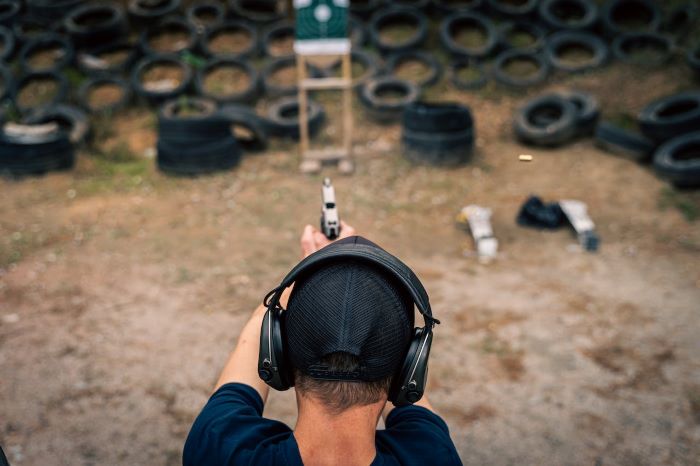



The decision to purchase a firearm for self-defense is a significant one, involving both legal and personal considerations. It requires a deep understanding of the responsibilities, legalities, and practical aspects of firearm ownership. Here, we offer comprehensive guidance for individuals who are considering purchasing a firearm for self-defense. Our aim is to ensure that they make an informed, responsible, and legal decision.
1. Understanding the Legal Requirements
Before even stepping into a gun store, it’s crucial to familiarize yourself with the local and federal laws regarding firearm ownership. These laws vary widely depending on your location and can include requirements for permits, background checks, waiting periods, and age restrictions. Ignorance of the law is not a defense, so ensure you are fully compliant with all legal requirements in your area.
2. Self-Assessment and Responsibility
Owning a firearm for self-defense comes with immense responsibility. It requires a sober self-assessment of your mental stability, maturity, and willingness to potentially use lethal force in defense of yourself or others. You must also be prepared for the legal and emotional aftermath that can follow a self-defense incident.
3. Training and Education
Proper training is not just about knowing how to shoot; it encompasses safe handling, storage, and understanding the principles of self-defense. Look for certified training courses that offer both classroom learning and practical shooting experience. Ongoing training is also essential to maintain your skills and knowledge.
4. Choosing the Right Firearm
Selecting a firearm is a personal decision and should be based on your comfort, ability, and the intended use. Consider factors like caliber, size, capacity, reliability, and ease of use. For those interested in a home defense option, the “Hi Point 9mm Carbine” is a model worth considering due to its affordability and effectiveness. Test different models at a shooting range and seek advice from experienced firearms instructors or knowledgeable salespeople.
5. Understanding Self-Defense Laws
Be aware of the laws in your jurisdiction regarding the use of lethal force in self-defense. These laws define when and under what circumstances you are legally allowed to use a firearm to defend yourself. Misunderstanding these laws can lead to criminal charges, even if you believe you acted in self-defense.
6. Safe Storage and Accessibility
Secure storage is essential to prevent theft, unauthorized access, and accidents. However, if the firearm is for home defense, it also needs to be accessible in an emergency. Invest in a quality safe or lockbox that balances security with accessibility.
7. Mental and Emotional Preparedness
The decision to use a firearm in self-defense can have profound psychological impacts. It’s important to mentally and emotionally prepare yourself for the realities of using lethal force, and consider counseling or support networks that can help in the aftermath of a self-defense incident.
8. The Financial Aspect
Owning a firearm involves more than just the initial purchase. Consider the costs of ammunition, training, safe storage solutions, and potential legal fees. Ensure that you are financially prepared for these ongoing expenses.
9. Insurance and Legal Protection
Consider obtaining self-defense insurance or joining a legal defense fund. These can offer financial assistance and legal representation in the event you need to use your firearm in self-defense, helping to mitigate the potentially significant legal costs.
10. Maintaining Proficiency and Situational Awareness
Regular practice is essential to maintain shooting proficiency. Additionally, develop your situational awareness skills to identify and avoid potentially dangerous situations, reducing the likelihood of needing to use your firearm.
11. Understanding the Aftermath of a Self-Defense Incident
If you ever need to use your firearm in self-defense, be prepared for the legal and investigative process that follows. It’s advisable to cooperate with law enforcement but also to seek legal counsel immediately.
12. Ethical and Moral Considerations
Reflect on the ethical and moral implications of taking a life in self-defense. This reflection is a deeply personal journey and an important part of being a responsible firearm owner.
Conclusion:
The decision to purchase a firearm for self-defense is not one to be taken lightly. It requires thorough preparation, education, and a deep understanding of the legal, ethical, and practical implications. By following these guidelines, potential gun owners can ensure they are making a responsible and informed decision, prepared for the realities of firearm ownership for self-defense.
No Related Post